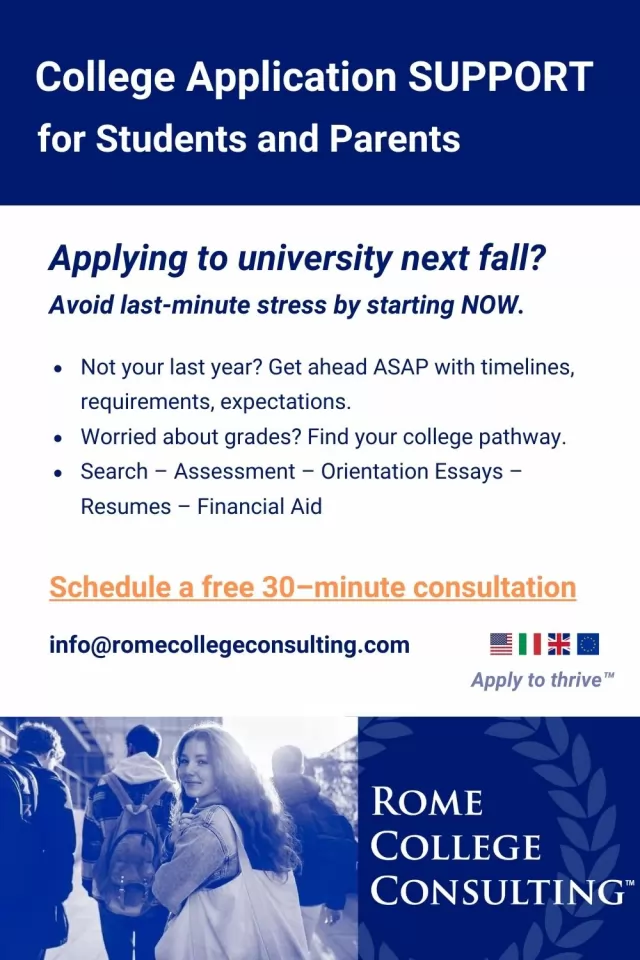As Rome prepares for local elections on 3-4 October, we take a look at the four main contenders for the city's top job.
By Andy Devane
The current mayor Virginia Raggi, in the final days of her five-year term, is seeking re-election.
However she faces tough competition from three other candidates. Carlo Calenda is the leader of the liberal and progressive political party, Azione. Roberto Gualtieri is the candidate for the centre-left Partito Democratico (PD). Enrico Michetti is backed by an alliance of three parties on the right, Fratelli d'Italia, the Lega and Forza Italia.
Virginia Raggi, a member of the populist Movimento 5 Stelle (M5S), is the first woman to hold the office of Rome mayor. She was elected in a landslide victory in 2016, promising “winds of change”, however it didn't take long for the honeymoon period to wear off. In the ensuing five years, Raggi has weathered controversies including rubbish piling up on streets, buses going on fire and wild boar running amok in the suburbs.
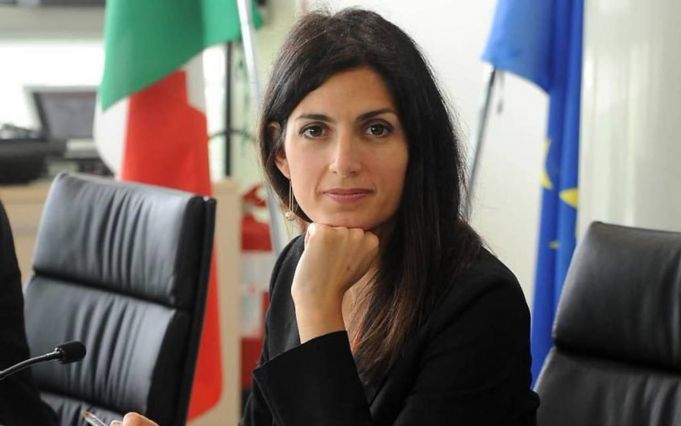
In Raggi's defence she inherited a deeply indebted capital and has made progress in turning around the dire accounts of a city she found “on its knees.” She has a good record on tackling Rome's criminal clans and has worked to clean up city hall following the notorious Mafia Capitale corruption case involving criminals conniving with corrupt politicians, city officials and businessmen to rig public tenders.
She has green credentials too, overseeing the introduction of rental electric scooters, as well as electric cars and bicycles, and increasing the city's network of cycling lanes. Raggi also points to her work in helping disadvantaged suburbs in the outskirts of Rome by investing in community projects and infrastructure. She has succeeded in getting the Metro C tunnels to reach Piazza Venezia.
However her detractors say things have got worse during her tenure, noting that she vetoed the city's bid to host the Olympics 2024 and presided over a failed stadium project for the AS Roma football team. She has faced ridicule for her plans to install a cable car project in the suburbs, and recently earned the ire of the city's Jewish community for laying the foundation stone of the Museo della Shoah Holocaust museum – a project stalled for many years – during the final weeks of her mandate.
Raggi, 43, is backed by M5S leader and former Italian prime minister, Giuseppe Conte, who has joined her on the campaign trail. In seeking a second mandate, Raggi says the city needs “continuity” to avoid “going back to the past.” In a recent interview with Wanted in Rome, she said that future challenges for the capital include preparing for the Jubilee of 2025 and Rome's candidacy for Expo 2030.
Carlo Calenda, 48, a politician and manager who has held senior roles at Ferrari and Sky Italia, is the leader of the liberal and progressive political party Azione. He has been on the Rome campaign trail for almost a year with a pledge to "bring this city back among the great European capitals."
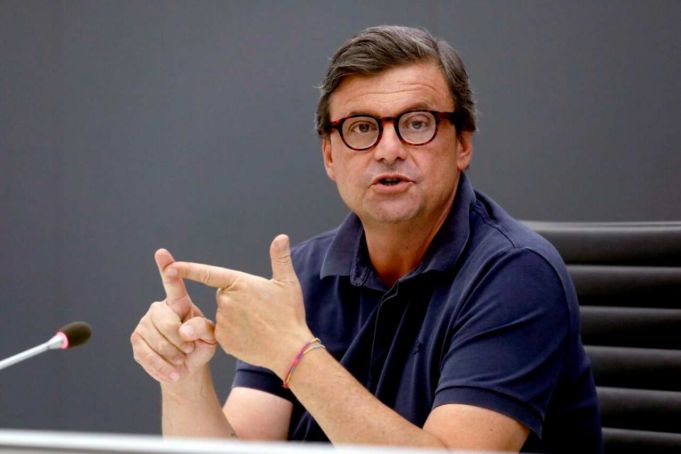
Calenda, who defines himself as a "liberal social democrat," graduated in law at La Sapienza. He served briefly as Italy's permanent representative to the EU in 2016 before being appointed Italian minister of economic development, a post he held under the administrations of both Matteo Renzi and Paolo Gentiloni of the centre-left Partito Democratico (PD).
Like Renzi (who went on to found the Italia Viva party), Calenda parted ways with the PD, after the party entered into coalition with the M5S in the cabinet of Giuseppe Conte in August 2019. It was originally thought that the PD might endorse Calenda however in the end the party went with its own candidate, Gualtieri.
Calenda runs a well-oiled, well-funded election campaign, surrounding himself with people qualified for their roles rather than being recognisable faces. Like Raggi, he is a combatitive character. He is skilled in the arts of social media, where his rivals frequently face the receiving end of his biting sarcasm.
With his ambitious 'Plan for Rome', Calenda says that despite what some Romans think, there is no such thing as an “ungovernable city.” Top of his list is tackling the “simply disastrous” rubbish situation by equipping Rome with its own treatment plants and a “sustainable and efficient” autonomous waste system. He also has plans to re-organise and speed up public transport and boost public services in each sector.
He was the subject of criticism for his suggestion to remove city hall offices from the Campidoglio and turn the vacated buildings into a mega ancient Rome museum, boosting the adjoining Capitoline Museums by cherry-picking works from other collections.
“My commitment is to look at the Rome of the future by putting its citizens at the centre of my project” – Calenda said in a recent interview with Wanted in Rome – “Rome is a city that needs to be reassembled piece by piece.”
Roberto Gualtieri, 55, who served as finance minister under the second Conte government from 2019 until 2021, is the candidate for the centre-left PD.
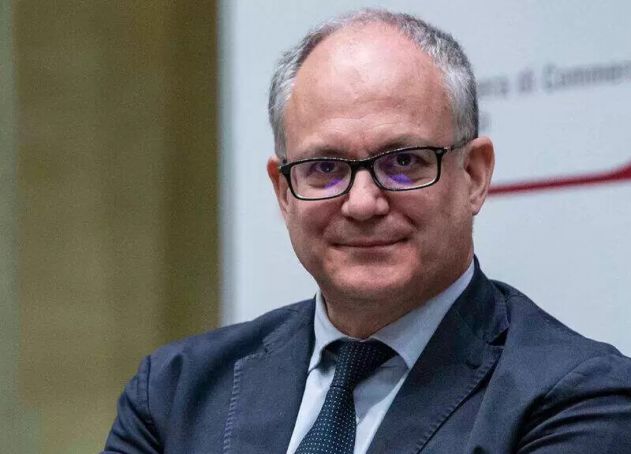
Despite a late start he is currently second place in the polls, after Enrico Michetti, and is rapidly closing the gap. Gualtieri is considered the PD's second choice as candidate after it was initially thought that the Lazio governor and senior party figure Nicola Zingaretti might run.
An historian and academic, Gualtieri is an associate professor in contemporary history (on leave) at Rome's La Sapienza University. A founding member of the PD, Gualtieri was a member of the European parliament from 2009 to 2019, where he chaired the influential economic and monetary affairs committee.
If elected, Gualtieri says he would tackle Rome's trash problem by boosting separated waste collection and investing in plants to treat and recycle rubbish; introducing a digitilisation programme in city hall; increasing gardening services and tackling the threat posed by the pine tortoise scale parasite to the capital's pine trees.
He also proposes having all city services “within 15 minutes” for residents of each area, from schools to public transport; investing in new trams; and extending the opening hours of the metro at weekends.
Gualtieri's campaign suffered a set-back, just 10 days before the election, thanks to a thinly-veiled attack from former PD mayor Ignazio Marino who slammed the party for putting forward a candidate that was part of the group who moved to oust him from office in 2015.
A keen guitarist in his free time, Gualtieri is endorsed by PD leader Enrico Letta and Zingaretti.
Roberto Gualtieri's programme.
The mayoral candidate currently leading in the opinion polls is lawyer and radio host Enrico Michetti who until recently was unknown to most people outside of his Radio Radio listenership, a fact acknowledged in his first election posters which bore the slogan “Michetti who?”.
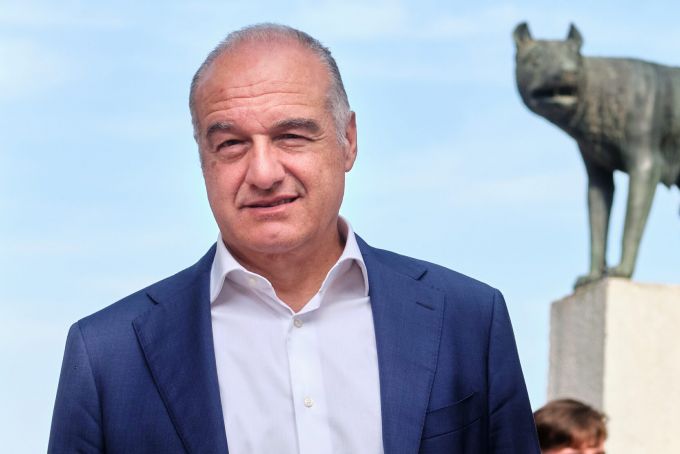
The 55-year-old is backed by the centre-right (centrodestra) alliance comprising the far-right Fratelli d'Italia (FdI) of Giorgia Meloni; the right-wing Lega party of Matteo Salvini; and the centre-right Forza Italia of Silvio Berlusconi. A law professor at the University of Cassino, Michetti was endorsed strongly by Meloni who convinced her allies to back the candidate she described as "an extraordinary professional."
Michetti is known to make cloying references to the glory of ancient Rome, telling reporters that “now is the time to give back to the Eternal City what it deserves, the role of caput mundi."
From the outset he promised a “very civil” election campaign and he has kept his word. He is less pugnacious than his competitors who accuse him of leaving debates early or not showing up at all. He is also accused of being scant on detail and slow to publish his election programme amid claims in the media that parts of it were allegedly plagiarised.
Michetti made headlines earlier this year for suggesting on his radio show that it was time to revive the stiff-armed Roman salute because it would be more hygienic in the coronavirus era. He has been somewhat ambigious in his attitude to covid-19 vaccines and his campaign has been distracted by controversies caused by several candidates on his electoral list, from their no vax conspiracy theories to their Mussolini tattoos.
Michetti says that if elected he would create a special councillor for the suburbs to focus on improving “services, infrastructure and opportunities” in the areas furthest away from the city centre. He would also allocate €250 million a year to invest in 6,000 km of roads and pavements; speed up the city's ATAC buses with new bus lanes and extra services; and construct 33km of new tram lines in time for Jubilee 2025.
Michetti says: "We must return to Romans the pride of living, working and investing in the future of the Eternal City." As the election date grew closer, Meloni increasingly joined his side on the campaign trail.






